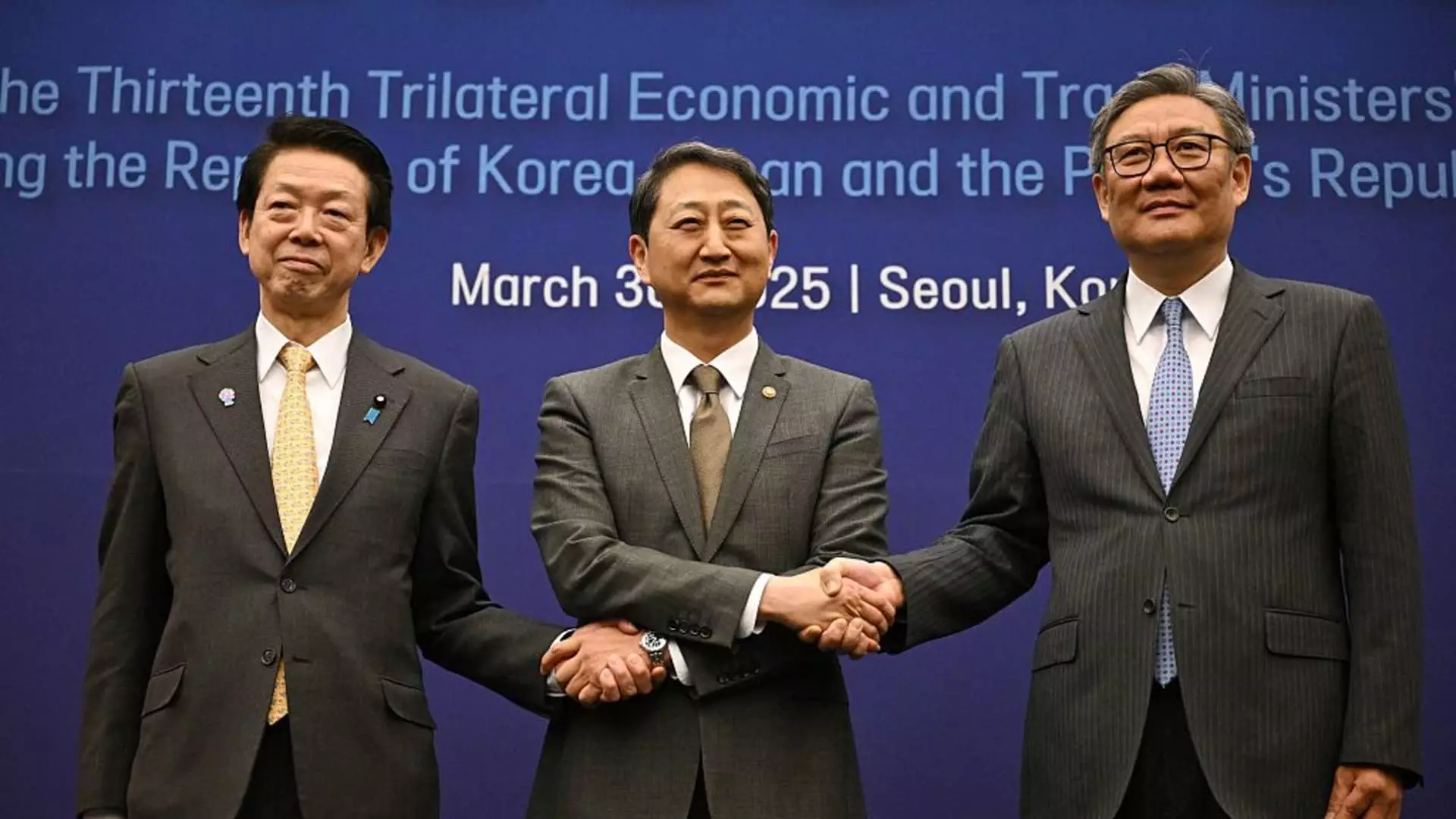The recent economic dialogue between South Korea, China, and Japan marks a vital step in the evolution of regional trade amidst escalating global tensions. After a five-year hiatus, these three economic powerhouses convened to address both their shared interests and the looming threats posed by the rising protectionism associated with the Trump administration’s policies. Such meetings underscore the determination of these nations to foster stronger economic ties despite external pressures, demonstrating a robust resilience as they navigate contemporary trade dynamics.
Political Maneuvering and Trade Implications
President Trump’s tariff strategies exemplify a disruptive approach to international trade relations that could have profound implications for the economies of South Korea, China, and Japan. By imposing hefty import tariffs on vehicles and auto parts, the U.S. is effectively destabilizing a crucial market for these nations. South Korea, for instance, is the second-largest exporter of automobiles to the U.S. arena, trailing only Mexico. This reality makes it imperative for these respective powers to protect their interests through cohesive action, as they grapple with the potential ramifications of fluctuating trade policies from Washington. Therefore, the commitment to advance discussions on a free trade agreement among the trio becomes not merely beneficial but necessary.
Challenges of Tri-National Negotiations
However, it cannot be overlooked that these nations have a lengthy history of territorial disputes, compounded by Japan’s controversial decision to release treated wastewater from the Fukushima nuclear plant. The history of friction among the three parties raises pertinent questions about their ability to forge a cooperative path. Despite embarking on negotiations for a trilateral free trade deal as early as 2012, tangible progress has been disappointingly sparse. This stubborn stalemate poses challenges that the recent dialogue must confront squarely if it hopes to yield meaningful outcomes.
The Potential of Regional Comprehensive Economic Partnership (RCEP)
Amidst these complexities, the Regional Comprehensive Economic Partnership (RCEP) offers a potentially unifying framework. As a trade agreement designed to lower barriers among 15 Asia-Pacific nations, it serves as a pathway for South Korea, China, and Japan to strengthen economic ties. The dialogue reflected a shared acknowledgment of the necessity to bolster RCEP, which emphasizes not just the potential economic benefits but also the importance of establishing a regional identity that transcends past grievances. As Trade Minister Ahn Duk-geun articulated, the real challenge lies in translating this cooperation into concrete actions that can foster sustainable growth rather than mere political rhetoric.
Forward Momentum in Uncertain Times
Looking ahead, there remains a cautious optimism about the potential for collaboration. The ministers’ agreement to reconvene in Japan for their next discussions signals a continued commitment to dialogue. As political winds shift unpredictably, this proactive approach reveals a desire to consolidate their economic positions in the face of external uncertainties. For these nations, success hinges on not just hasty agreements but rather a strategic alliance rooted in mutual benefit and respect, ensuring that the wheels of trade keep turning even when the geopolitical landscape becomes increasingly treacherous.


Leave a Reply